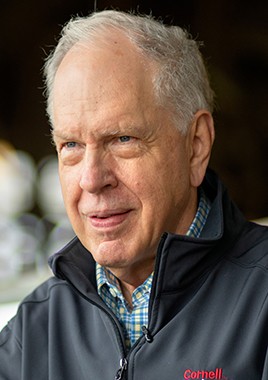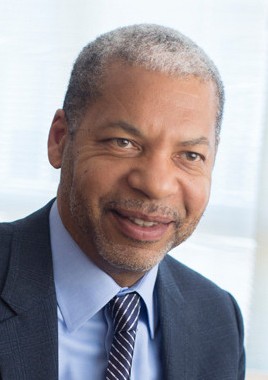Tester, Collins elected to National Academy of Engineering
Jefferson Tester, professor of chemical and biomolecular engineering, and Lance Collins, professor emeritus of mechanical and aerospace engineering and the former Joseph Silbert Dean of Engineering, are among the new class elected to the National Academy of Engineering.
Election to the academy is among the highest professional distinctions for an engineer, with membership honoring those who have made outstanding contributions to “engineering research, practice, or education… and to the pioneering of new and developing fields of technology, making major advancements in traditional fields of engineering, or developing/implementing innovative approaches to engineering education,” according to an announcement by the academy.
Tester, the David Croll Sesquicentennial Fellow, was elected for his “leadership in development of novel renewable energy systems.” His research on geothermal and biomass energy as well as environmental control technologies has resulted in more than 300 scientific publications and 13 co-authored books.
Tester currently serves as principal scientist for Cornell’s Earth Source Heat project – a proposed enhanced geothermal system that would use Earth’s internal heat to warm campus buildings. He is also a fellow in the Cornell Atkinson Center for Sustainability and the Royal Society of Chemistry, a member of the United Nations’ Intergovernmental Panel on Climate Change, and serves on several advisory boards, including for the National Renewable Energy Laboratory and the American Council of Renewable Energy and the Idaho National Laboratory.
Prior to joining Cornell in 2009, Tester was the Meissner Professor of Chemical Engineering at the Massachusetts Institute of Technology and director of the MIT Energy Laboratory, and was a leader in the Geothermal Engineering Group at Los Alamos National Laboratory. He also served as the U.S. representative for geothermal energy for the Special Report on Renewable Energy Sources and Climate Change Mitigation of the United Nation’s Intergovernmental Panel on Climate Change.
“Jeff is without question one of the leading experts in the world on the thermodynamics, reservoir science, and techno-economics of geothermal energy systems,” said Lynden Archer, the Joseph Silbert Dean of Engineering. “His contributions range from authorship of a leading graduate textbook on fundamentals of chemical engineering thermodynamics to development of geothermal reservoir models, novel reactive tracers, and thermal spallation rock drilling methods for assessing geothermal energy reserves.”
Collins was elected to the academy for “contributions to understanding turbulent processes, leadership in engineering, and contributions to the diversity of the profession.” He left Cornell in 2020 to become the inaugural vice president and executive director of Virginia Tech’s Innovation Campus, but remains an emeritus faculty member and was elected to the academy under his title as the former dean of the College of Engineering.
Collins joined Cornell in 2002 as a faculty member specializing in the application of numerical simulations to turbulent processes. As the first Black dean at Cornell, Collins prioritized diversifying the college’s faculty and student body, more than doubling the proportion of students from underrepresented communities and increasing the enrollment of undergraduate women from 33% to 50%.
For his diversity efforts, Collins received the inaugural Mosaic Medal of Distinction in 2017 and the 2018 Edward Bouchet Legacy Award.
“Lance has for decades been a highly respected leader and mentor for chemical engineering faculty nationwide, committed to diversifying the ranks of our discipline,” Archer said. “At Cornell, he led our College of Engineering through a period of significant financial stress and transition to provide a foundation from which we can realistically aspire to achieve all-around excellence in teaching, research and technology translation. Election to the National Academy of Engineering provides fitting recognition for his impactful contributions across the full set of domains that constitute academic excellence in the 21st century.”
Tester, Collins and other members of the newly elected class will be formally inducted during the academy’s annual meeting on Oct. 3.



